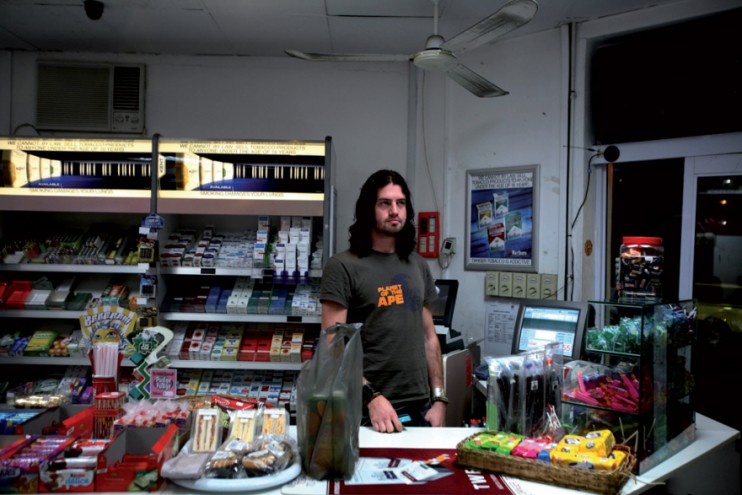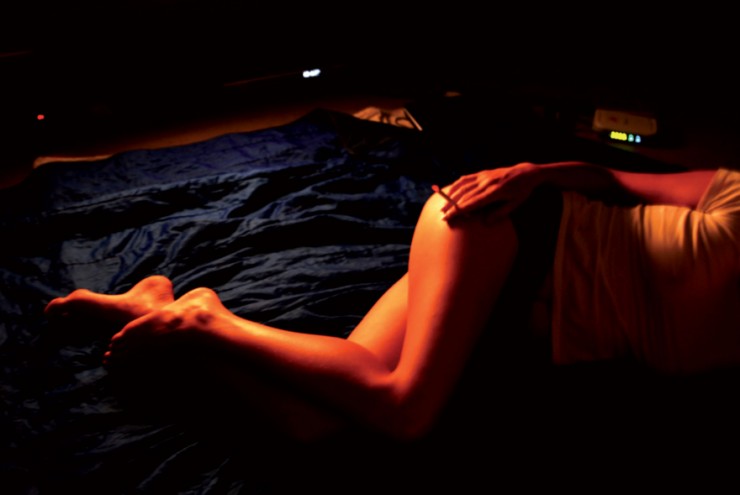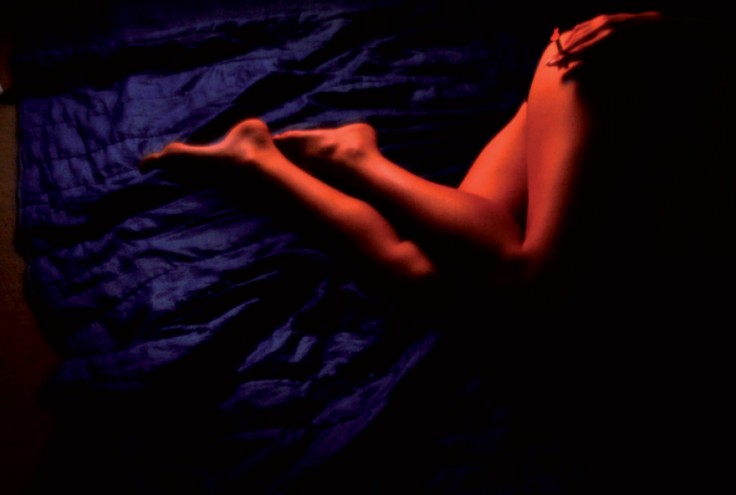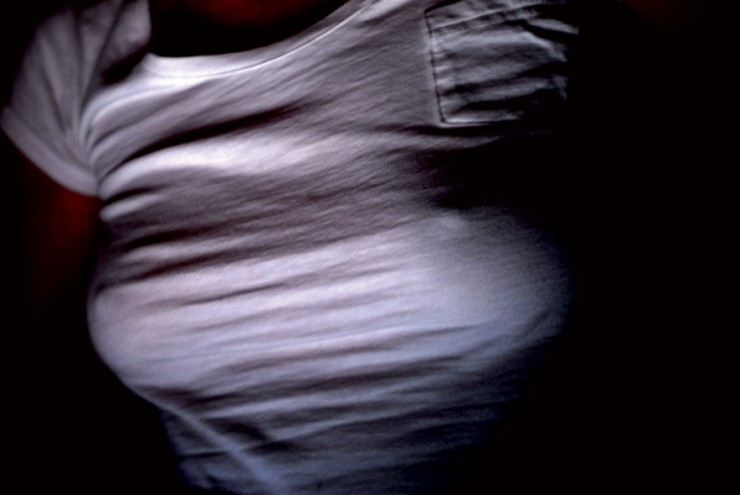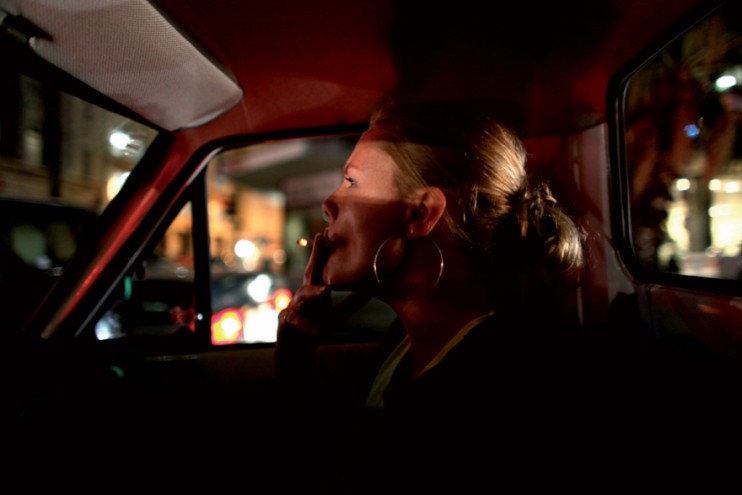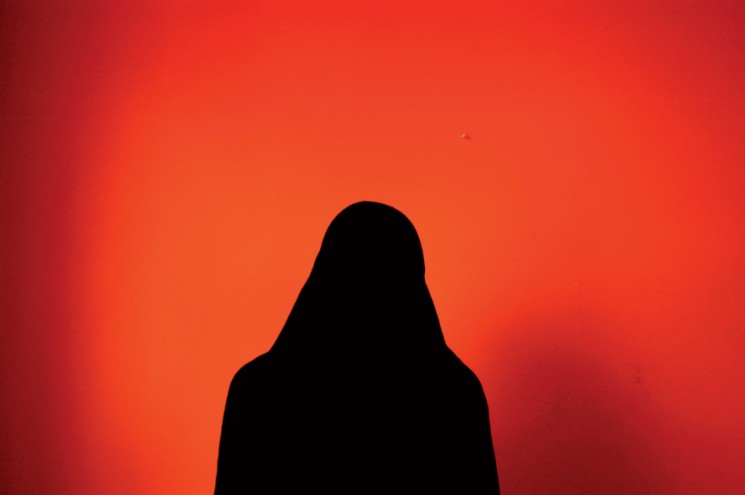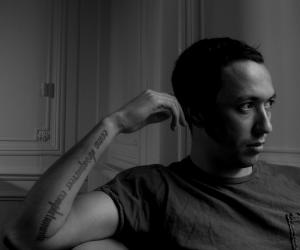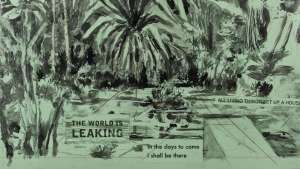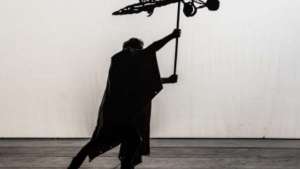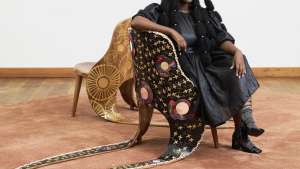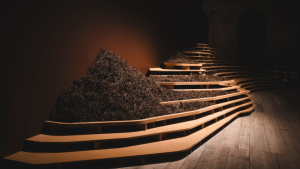First Published in
Religiously speaking, sex has a time and a place and is not simply about getting off. Socially speaking, sex has an aesthetic that requires a pilgrimage to its place of worship – the gym – and a strict enforcement of its rules and regulations, all of which simply define what’s “hot” and what’s “not”.
I’m not entirely sure what we think of sex, when in public and when in South Africa. Yet even today, when sex seems “so 10 years ago”, it still has the power to shock. It seems only natural that there is an element of fear when considering how exhaustively unlimited the sexual potential of any and all situations are. But what fascinates me is the lines we draw in the sand when we consider all things sexual.
I’d like to think that we don’t mind talk of sex, sexual preference, perversion and pleasure when it’s within the comfort of a hypothetical framework. One that allows us all to speak as if delivering a cooler-than-school lecture to a group of first-year Queer Studies enthusiasts. An abstraction of sex that makes it bearable to cohabit with. The thought of what your parents must have done to give you those sparkling blues eyes has no voice within this social discourse. We keep secret, (possibly as we should do) the truth of what we really want and desire.
Beneath the abstraction however, I would love to believe that behind each face I pass daily is a web of sexual deviation and anarchy. That every cashier, doctor and magazine editor is fronting a very clear, very calculated sexual want and pursuit. That the least suspect of us all – not the desperately androgynous fashion designer nor the strung-out politician – but the dull, predictable receptionist, the notably warm and cuddly asexual mother type that each office and Christian family is run by, is in fact a ravenously kinky, sexually unfulfilled vessel that mocks us all with their gentle and non-threatening touch.
The thought of this person is exhilarating because it means that there is more than one assumes, and that we aren't all so freakishly well mannered and on the sexual “straight and narrow”. Then there is hope for our democracy after all. It surely cannot be possible that we all subscribe to the single (if not predictable) aesthetic that mainstream South African sex exists within. The accompanying thought then, is that if there is a gaping hole in the centre of one’s orgasm, it needs exploring.
The problem however is this: We really don’t want to imagine the sex life of the people who don’t hover on the front of a magazine in grainy, homemade sex tapes. We want to see Joost van der Westhuizen snorting a line of coke off some chick’s thigh, because he’s not supposed to. The Minister of Arts and Culture wants to fund photographic works by emerging talent, as long as it’s not black lesbians sporting rather large white dildos. We want to mock our president for having a football team of kids. But when our neighbour does it, or our dad, when your colleague is having an affair and loving it, when the fat man with pussy growths who serves you coffee over a makeshift stand gives a rather lingering eyeful you shut down. “Certain people are not meant to have sex”, the youth decry.
Most young people claim sex as the gift of their time, one that vanishes from sight at a certain age; an age that the young foolishly assume they will never reach. But we know that sex is not just for the blind worshippers of the “moronic beauty of youth”, what about the sex of everyone else? The overweight 30-something, the hairy father of two, the pimple-faced government employee. Can you put that on a screen? Would the people who recognise themselves in the image, accept the reproduction of their own sex lives in public? I hope so. Because these are the exact people who’s sex lives I would want to explore as a storyteller. These are the careless whispers and tales between lovers that are most likely to present the worthiest footage for a lingering camera and a pensive plot. And, more importantly, a map of the human heart.
How does creativity get strapped and straddled in this underground sect of unfitting sexual players? What does a young Cape Malay woman do when she finds herself unhinged by her first, illicit sexual experience? What details of her layered sexual being and uncharted emotional range can be explored through her dual role as protagonist of her virtuous life and villain of her sexual coming-of-age? Surely she must be riddled with guilt and shame – conflict erupting between her religious code and the fact that now “she’s gotta have it”? What are the dimensions of her shame? More importantly, what is the volume of her ecstasy? Her pleasure most presumably derived from the white skin of the man, the untouchable “other”, that has claimed her “honour”.
Or, there is the Afrikaner family man who takes it up the ass twice a month at the Haas Plaas. A character that has no means of defining his sexual orientation because it cannot exist within his fragmented perception of self. Yet the joy aroused from his dual existence as sinner and saint is more fulfilling to him than any truth he could utter. One would never know this about him as his bakkie pulls up alongside you at a red light and he greets you with a neighbourly grin. Would we care if we knew, would we judge him? Probably.
Unless… We were him, unless we saw ourselves in all the people who live double lives, who have real bodies, and who perpetuate constant lying and secrecy. Those who feed their inner most desires as if it we a tiny bird they kept hidden in their inside pocket. The phrase “I’ve been you” is most unifying when you think of all the people who’s sexual advances you have rejected, in favour of a better, more deserving partner. You have been them, yes.
Because sex has value, it makes us get up in the morning, it makes us dress for work and pays our gym membership. It buys our drinks on a Saturday night and takes care of the bill while we gossip over Sunday brunch. It breeds within every judgment and moral theory that we spurt out across phone lines and blog spots. It motivates every innocent and deviant act of “fate” that we orchestrate. It is the root of all over-intellectualised, anti-religious, plastic, well-adjusted happiness. We’ve got to have it. But we can’t talk about it, unless it’s pretty. Nobody can, because, my guess is, that if we did we’d having nothing to hide. And that wouldn’t be very South African would it?
Oliver Hermanus is a Cape Town-based writer and director who’s first feature film, Shirley Adams, has won several international film prizes, including Best Film at the South African Film and Television Awards. Website: www.shirleyadamsmovie.com
Gary van Wyk is a Cape Town-based documentary photographer whose work has been published in numerous international magazines and newspapers. Email: Gary.vanwyk@yahoo.com

